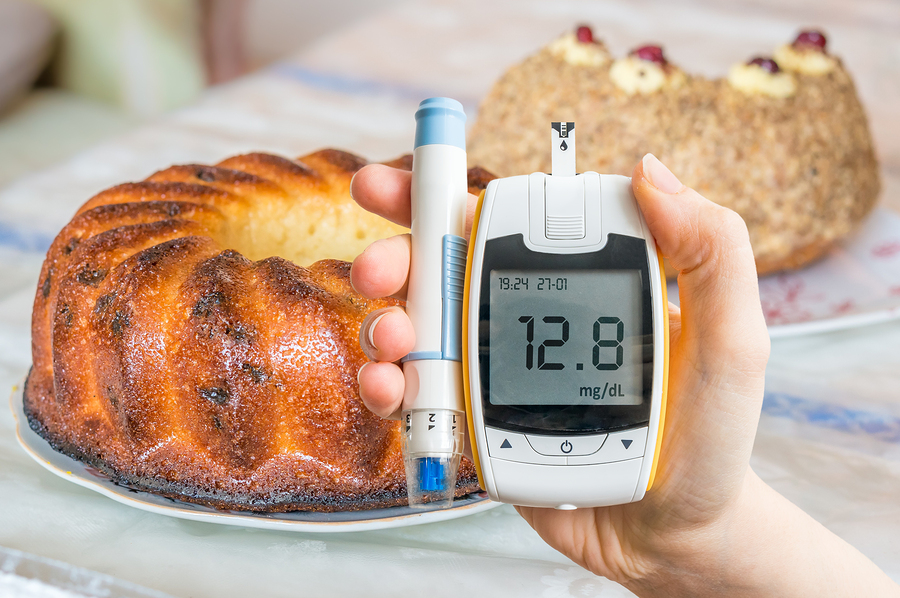Diet for Gestational Diabetes

Wondering about a Diet for Gestational Diabetes? Here are some answers to your questions.
A medical condition characterized by high blood sugar levels that is discovered during pregnancy is what we call "gestational diabetes". This is usually the result of the hormonal fluctuations that usually occur in all women during pregnancy. There is interference that happens when there is an increased level of certain hormones that is made by the placenta, which interferes with the ability of insulin to manage the blood sugar level. We called this "insulin resistance".
Why you need a special diet for gestational diabetes
The increased in hormonal activities and stress associated with pregnancy is thought to be a factor and pregnant women who are at risk will need to follow a diet for gestational diabetes. Also, expectant mothers who are already diabetic at the time of conception will also need to follow this type of diet in order to properly manage their blood sugar levels during pregnancy.
Any woman suffering from gestational diabetes should consult with their healthcare provider or a registered dietician to help create the proper diet plan for her and the unborn baby. Management of blood glucose levels during pregnancy is of the utmost significance and modification of dietary intake is the best way to accomplish this.
During a pregnancy, the primary goal of the diet for gestational diabetes is to ensure the right amount of calories and nutrients for the mother and baby while also keeping blood sugar levels under tight control. The diet itself should be individualized to each woman based on her weight and height.
Blood sugar levels will also need be measured and tested at least five times a day. This is needed to ensure that the woman's blood glucose remain under control throughout the day. The frequency of testing can be reduced once good sugar control is established but self-monitoring will need to continue throughout the pregnancy.
It is vital that the diet plan meets the nutritional needs of a normal pregnancy. Many doctors focus on weight gain, but that can be a mistake during pregnancy. They will site the following “normal” weight gain recommendations
During the first trimester of a normal pregnancy, women are expected to gain 2 to 4 pounds. Once the second and third trimester begins, weight gain should average a pound a week. Caloric consumption will need to be increased by roughly 150 to 300 calories per day during the second trimester.
We feel that the quality of the nutrition is more important than the quantity or the calories. Not all calories are created equal! Calories coming from simple carbohydrates are far more likely to be converted to fat than those from protein and green veggies.
The dangers of getting inadequate nutrition while you are pregnant
One of the main dangers of inadequate nutritional intake is what is known as toxemia of pregnancy or preeclampsia. Preeclampsia strikes one in 20 pregnant women in the US according to WebMD. The main symptom is a sudden rise in blood pressure that threatens both the unborn child and the mother. Most doctors will tell you that they have no idea what causes it, but Dr. Brewer found that he could prevent it the vast majority of the time by simply ensuring his patients ate a healthy pregnancy diet. The cornerstones of his program were to ensure that pregnant women ate 100-120 grams of protein per day and salted their food to taste.
A healthy diet for gestational diabetes is one that includes low GI carbohydrates, such as protein, vegetables, whole fat dairy and healthy fats. The key to managing gestational blood sugar levels is to have small meals throughout the day that include a protein, green vegetable and healthy fat.
Diet for Gestational Diabetes
Protein – 6-8 servings per day aiming for 120 grams of protein per day of wild caught salmon, grass fed beef or lamb, organic chicken, organic turkey
Vegetables – 6-8 servings of vegetables per day with at least 4 servings of dark green vegetables
Healthy Fats and Oils – 3-6 servings per day of grassfed butter, cod liver oil, avocado, avocado oil, olive oil (cold only), coconut oil in salad dressings, sauces and for cooking.
Fruit – 2-3 servings per day of either citrus or berries
Water – Unlimited
Salt – Salt food to taste
Conclusion
As is the case with almost any disease, adopting a healthy lifestyle is important to successfully manage the disease. An overall healthy diet not only increases your chance of successfully and effectively managing your gestational diabetes, but allows your digestive system to perform correctly, and your brain to function properly. Generally, effectively managing your blood glucose levels with a healthy diet and consistent exercise will give you the opportunity to have a normal pregnancy.



New! Facebook Comments
What do you think? Share your thoughts below...